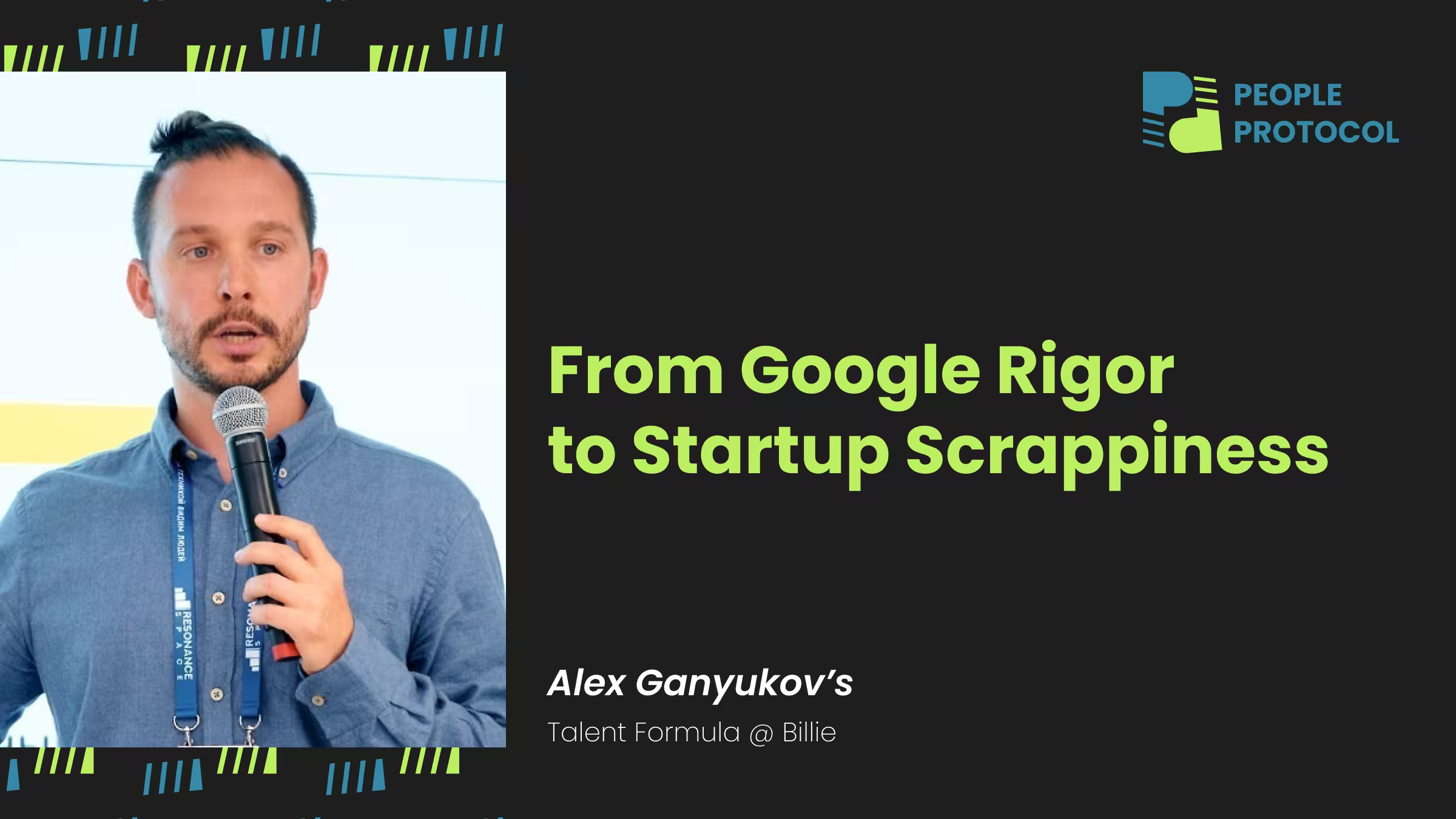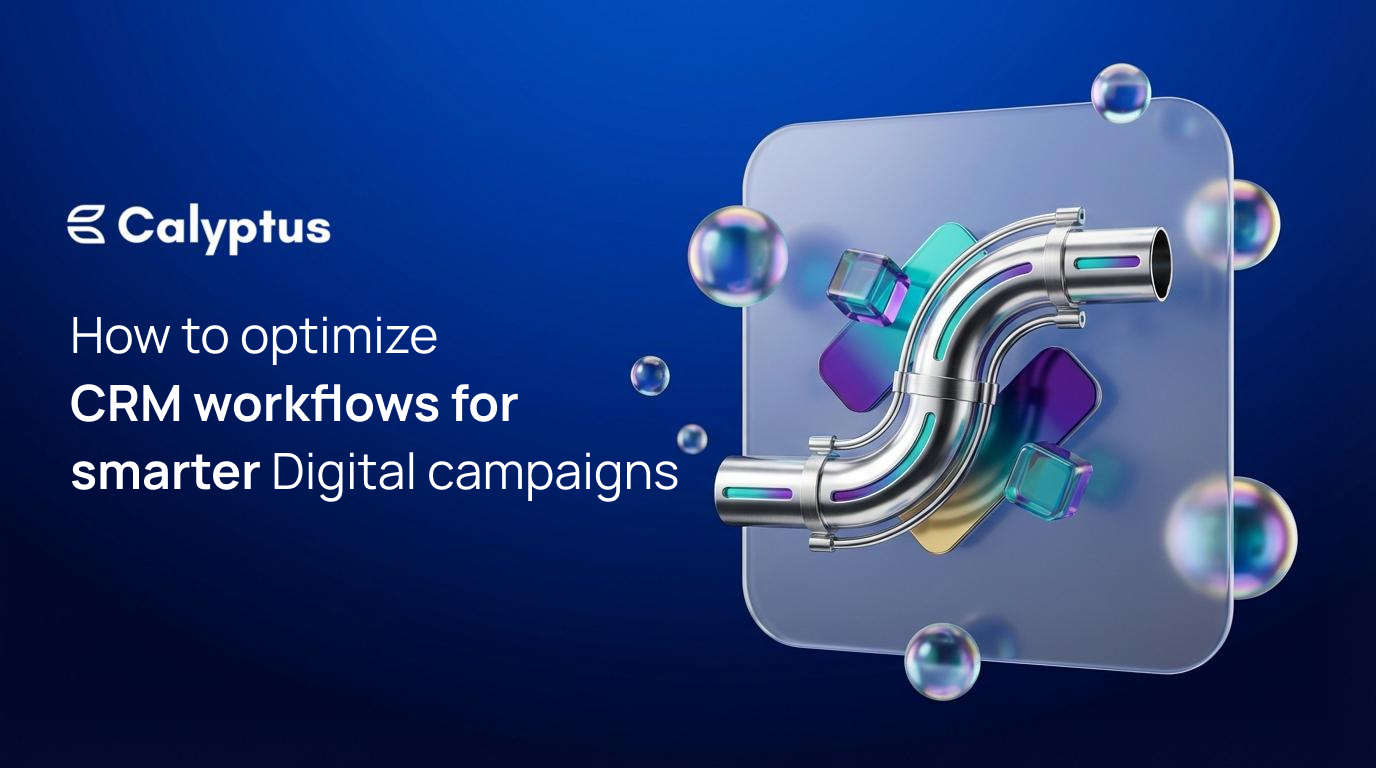When Alex Ganyukov joined Billie Germany’s high-velocity B2B payments scale-up, he faced a classic fintech dilemma: world-class engineering challenges hidden behind an unglamorous B2B label. Drawing on startup hustle and Google-grade process discipline, Alex rewired talent acquisition around data, narrative, and emerging AI tooling. In this People Protocol Q&A, he reveals how to pitch boring-sounding products as career rocket-ships, which hiring signals predict success in hyper-growth, and why AI is less hype and more recruiter superpower.
You’ve helped scale talent functions across startups and giants like Google. What parts of that experience shaped your approach at Billie most?
My time at both startups and Google has really shaped how I approach things at Billie. From startups, I learned how important it is to be flexible, creative, and able to build processes from scratch. I got used to working quickly and adjusting as the business changes.
At Google, I saw the power of using data to make decisions, running operations at a high level, and building a strong employer brand. I learned how to think long-term about talent, build solid systems, and use technology to support large-scale hiring - skills that are key as Billie continues to grow.
What’s been your biggest challenge in attracting top talent to a B2B fintech product and how have you tackled it?
One of the biggest challenges has been that B2B fintech doesn’t always seem as exciting as consumer-focused companies. Many people are more familiar with consumer brands, so they don’t immediately see the appeal of what we do.
To change this, we focus on telling clear stories about how our product helps real businesses, the interesting technical challenges we solve, and the impact our work has. We also highlight the career growth people can have here - how they can shape the product, work with innovative tech, and grow fast in their roles. Once people understand our mission and the kind of problems we’re solving, they become very interested.
You joined Billie post-VC investment. How did you shape the TA strategy for a company entering scale mode?
When I joined Billie, we were already in “scaling mode.” That meant we needed a clear talent strategy that supported fast growth without lowering quality. My first goal was to create a solid and repeatable hiring process. That included setting up structured interviews, getting the most out of our ATS, and telling our employer story well.
I also focused on building a strong talent team with the right skills, like sourcing talent proactively, creating a good candidate experience, and managing stakeholders. We worked closely with hiring managers to define roles clearly and set clear hiring criteria so we could find the right people for our growing business.
What hiring signals have proven most predictive of success in a high-growth fintech like Billie?
We look for people who are great at solving problems, especially those who can take complex situations and come up with smart, creative solutions even when things are unclear. Being adaptable is also very important - we move fast, and things change quickly.
We also focus a lot on culture fit. We want people who share our values - like working well with others, taking ownership, and always wanting to grow. And even if someone doesn’t have a background in finance, if they’re action-oriented and truly interested in fintech, they tend to do really well here.
What role do you see AI playing in reshaping talent acquisition over the next 12–24 months? Hype or game-changer?
AI will be a game-changer in hiring in the next year or two. We’re already seeing how it helps with tasks like screening CVs and sending first messages to candidates. This gives recruiters more time to focus on building relationships and solving more complex problems.
Looking ahead, AI will make it easier to find the right people through smart predictions based on data. It will also improve how we talk to candidates, using chatbots and personalised messages. The key is to use AI to support people, not replace them. Done right, it can make hiring faster, smoother, and better overall.
If you had to design a talent strategy today for a team built entirely to work with or around AI tools, where would you start?
First, I’d want to really understand the AI tools we’d be using and what skills they require. Instead of just saying “we need AI skills,” I’d look closely at what’s needed, like prompt engineering, working with data for AI models, or understanding the ethics of AI.
Besides technical skills, I’d look for strong soft skills like critical thinking, being open to change, and always wanting to learn. People working with AI need to keep learning, solve tricky problems, and adapt as the tools evolve. My strategy would include a strong focus on training and growth, so the team doesn’t just use AI - they innovate with it. I’d aim to build a team that understands AI deeply and is ready for the future.




